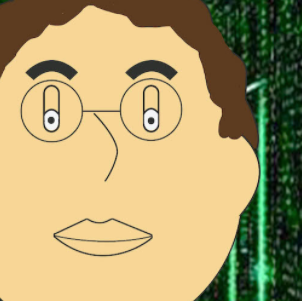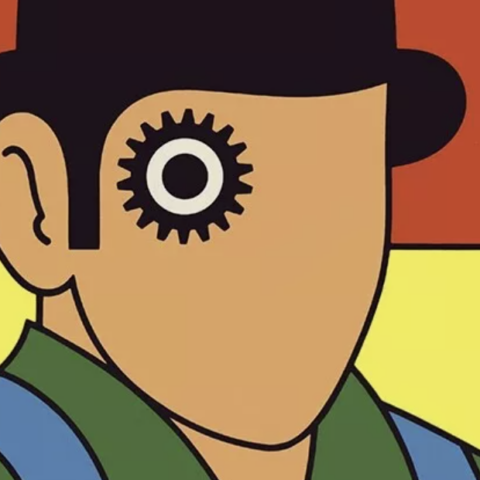Short Circuits
By Jo Phillips

Illustration by Georgia Lewis.
Like all great Polish writers, Jerzy lives in the South of France, in a villa, drinking Chardonnay and speaking French to his wife. Until it stops. He suffers a nervous breakdown; he can’t even hold a pen.
How could Bruno Schulz find inspiration in a town he never left, with no wine, wife or villa? Jerzy packs his suitcase and goes to Drogobych.
On the train the face of a woman sitting opposite reads like a map: he immediately knows what her bare buttocks must look like. Is it that here the faces are rounder? Or are all shapes suddenly fuller? Or maybe it’s him feeling less edgy. No doubt, if he made a joke now he would feel the phrases on his skin, tickling him and everybody would laugh. At home it’s different: when he says something amusing, he is told: “Non, you would not use subjonctif here.”
In the middle of Drogobych, factory chimneys release grey clouds into the pink sky. The market is still where it used to be seventy years ago. There are adverts on the fences offering cheap barbecue equipment from the local supermarket. But on a Saturday, the whole town still comes here, and the supermarket is empty.
Walking down Stryjska Street, Jerzy overhears a series of obscenities that a young girl is whispering to her partner, who is several sizes too big for her. They look like a squirrel and a bear.
“Maybe you could fuck me in your mother’s bed,” she tells the bear. It occurs to Jerzy that – of course – they are speaking Ukrainian, which to a Polish ear is both familiar and incomplete. He can’t know for sure what they are saying.
Jerzy exhales, takes out his notebook, and begins to write it all down.





